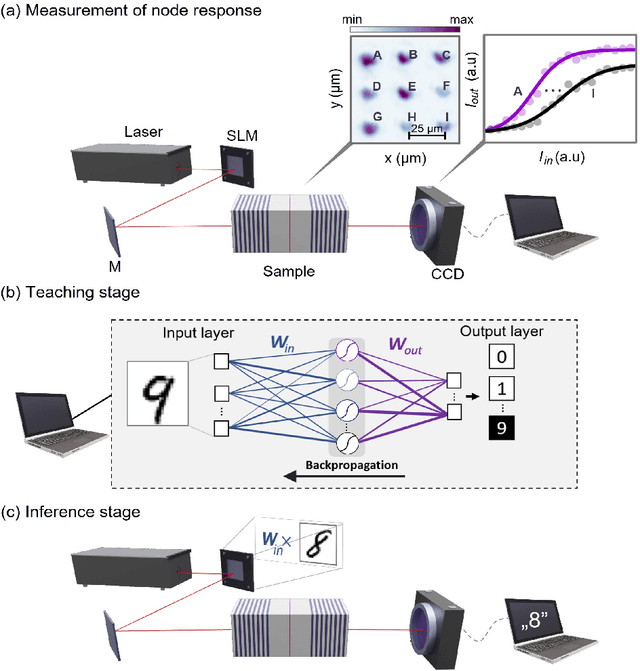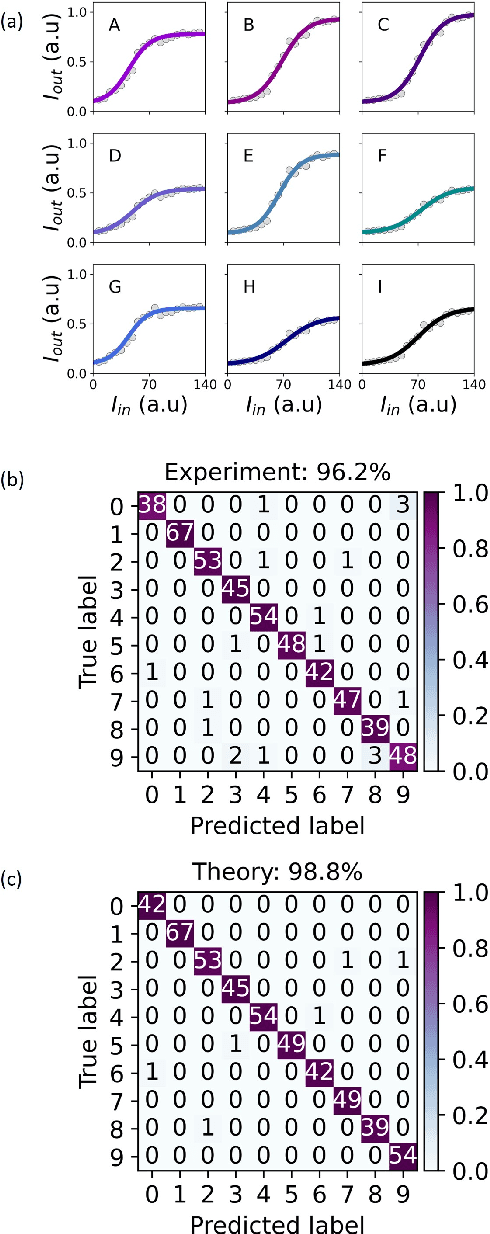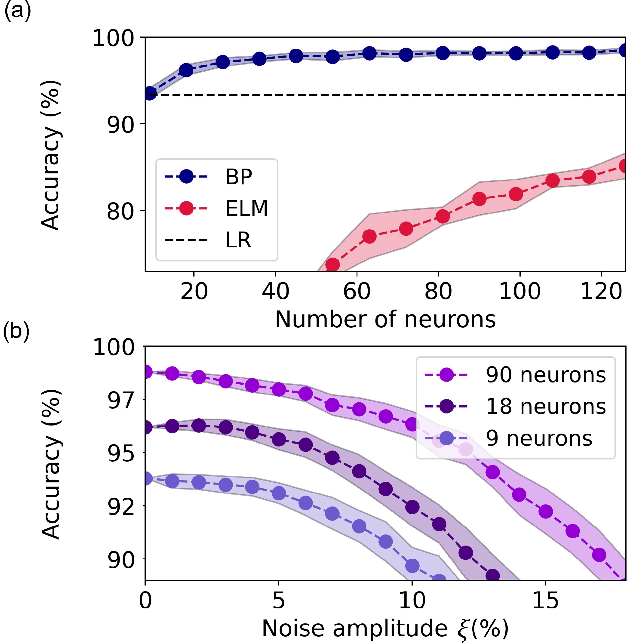Teaching a neural network with non-tunable exciton-polariton nodes
Paper and Code
Jul 23, 2021


In contrast to software simulations of neural networks, hardware or neuromorphic implementations have often limited or no tunability. While such networks promise great improvements in terms of speed and energy efficiency, their performance is limited by the difficulty to apply efficient teaching. We propose a system of non-tunable exciton-polariton nodes and an efficient teaching method that relies on the precise measurement of the nonlinear node response and the subsequent use of the backpropagation algorithm. We demonstrate experimentally that the classification accuracy in the MNIST handwritten digit benchmark is greatly improved compared to the case where backpropagation is not used.
 Add to Chrome
Add to Chrome Add to Firefox
Add to Firefox Add to Edge
Add to Edge